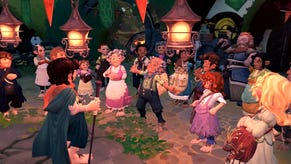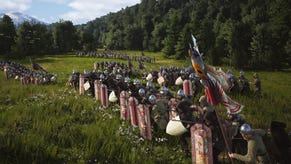Newell: Stop piracy by offering superior service
Valve boss speaks up on the value of customers.
The best way to combat video game piracy is by offering consumers better service than they might get from the pirates, according to Valve boss Gabe Newell.
Speaking at a tech conference in Seattle, as reported by GeekWire, Newell explained that instituting restrictive DRM was the wrong way of looking at the problem.
"One thing that we have learned is that piracy is not a pricing issue. It's a service issue," he said.
"The easiest way to stop piracy is not by putting anti-piracy technology to work. It's by giving those people a service that's better than what they're receiving from the pirates.
"For example, Russia. You say, oh, we're going to enter Russia, people say, you're doomed, they'll pirate everything in Russia. Russia now outside of Germany is our largest continental European market.
"But the point was, the people who are telling you that Russians pirate everything are the people who wait six months to localise their product into Russia," he continued.
"It doesn't take much in terms of providing a better service to make pirates a non-issue."
Elsewhere in the presentation, Newell offered up more insight on how respecting the customer can pay handsome dividends.
While discussing how to find a game's pricing sweet spot, Newell argued that new customers brought in during a price promotion acted as valuable ambassadors for the title.
Apparently, when Valve has reduced or raised a game's price without any kind of advertising, gross revenue from that title has remained constant. However, when it's run a visible money-off promotion, revenue has shot through the roof.
He cited one example where a 75 per cent off online offer had increased revenue by a factor of 40.
Not only that, but Valve saw a knock-on effect on the boxed version, which it attributes to happy customers evangelising the game.
"Promotions on the digital channel increased sales at retail at the same time, and increased sales after the sale was finished," he explained.
"Essentially, your audience, the people who bought the game, were more effective than traditional promotional tools.
"So we tried a third-party product to see if we had some artificial home-field advantage. We saw the same pricing phenomenon. 25 per cent, 50 per cent and 75 per cent very reliably generate different increases in gross revenue."
For more detail on the DRM issue, give Eurogamer's recent in-depth industry-wide piracy investigation a read.








